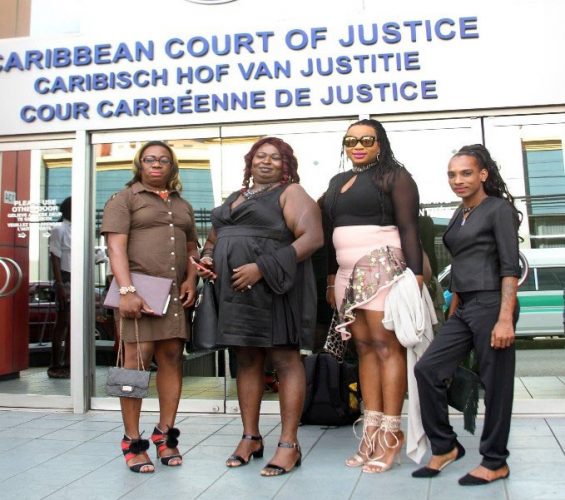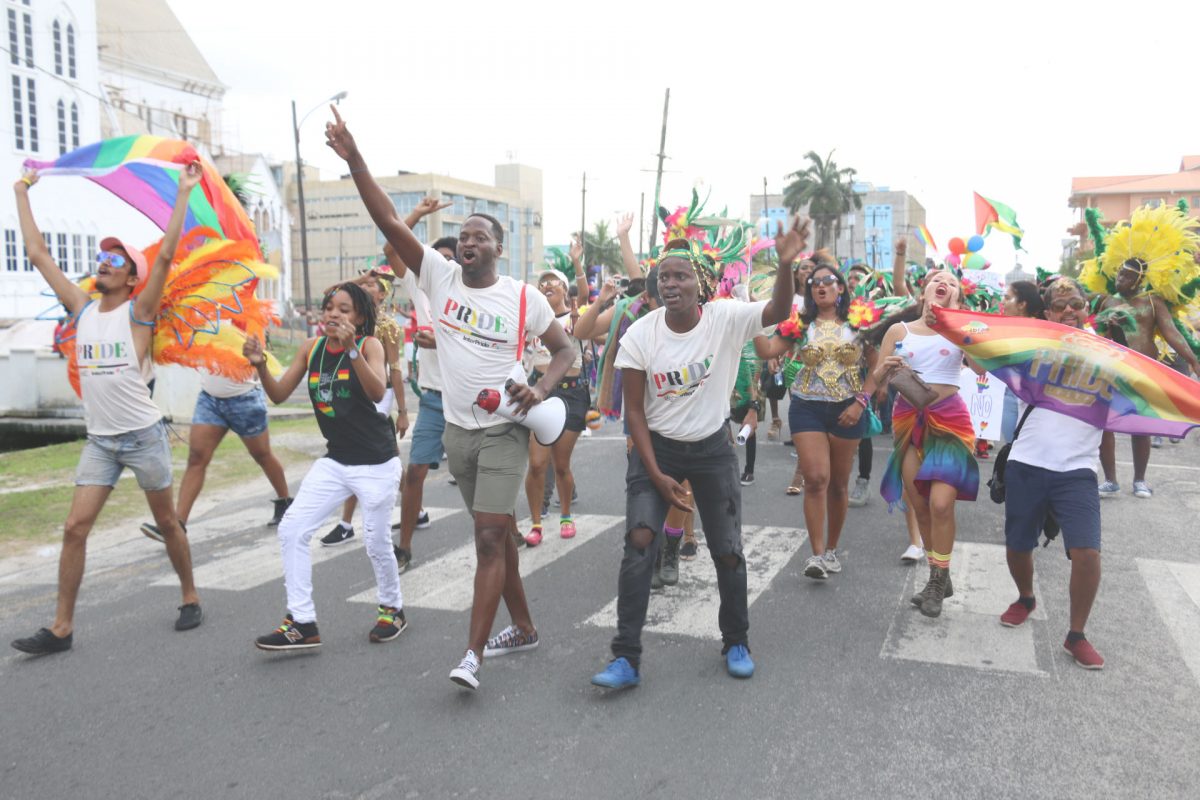The Society Against Sexual Orientation Discrimination (SASOD) is celebrating the 17th anniversary of its founding today.
The organisation, which was formed on June 7, 2003 by mostly students of the University of Guyana at the time, sought to advocate for the inclusion of sexual orientation as grounds for discrimination in Guyana’s Constitution. That goal is still to be achieved but along the way SASOD has had a number of successes, albeit ones that came with their own challenges.
During a telephone interview with Sunday Stabroek, the Managing Director of SASOD, Joel Simpson, recounted that when the group was formed, they initially went by the moniker “Students Against Sexual Orientation Discrimination” and had one mission, which was to lobby for the adoption of the amendment to the Constitution protecting persons from discrimination on the grounds of sexual orientation. They did not foresee the beginning of a movement, he said.

“We thought that we would just be advocating for the passage of the sexual orientation amendment so that sexual orientation would become a ground for discrimination in the Constitution and that would be the end of our mission,” he explained.
The goal was not achieved and the members of the organisation recognised that there was need for more organising and mobilising within communities to achieve that aim. With mobilising, the membership of the organisation grew in the period 2003-2005. “That allowed us to achieve several things; we actually started to hear stories of discrimination but at the same time we also found that LGBTQ Guyanese are creative and resilient and they were finding ways to survive and even thrive,” Simpson recalled.
The group was legally registered in 2006 to continue doing work in the communities within a formal framework.
“More than anything else SASOD Guyana is a movement; we’re a movement more than we are an organisation… for us the focus is always on impact and the results that are generated from whatever interventions that we make,” Simpson said. In that light, the organisation also focused on assisting underrepresented groups within the community to self-organise and start up. This included the Guyana Trans United (GTU). Following a project by SASOD, which aimed to catalyse sustainable self-organising among transgender persons, GTU was formed in January 2012.
That organising stemmed from what seemed to be a crackdown against cross-dressing in February 2009, during which a number of transgender persons were arrested. “From the time we started doing the documentation of all the human rights violations since February 2009 when it first happened, we recognised the gaps; the project work we did supporting the monthly meetings inspired to them to self-organise and start [GTU],” Simpson recounted.
Decriminalisation
Out of this movement, the two groups, GTU and SASOD, were able to achieve the most notable success thus far, which was the decriminalisation of crossdressing in Guyana.
Following that crackdown in 2009, the transgender individuals who were arrested were placed before a city magistrate and pleaded guilty to a crossdressing charge. SASOD was able to reach out to the litigants and subsequently attained counsel to challenge the law in Guyana’s courts. The suit, which was filed in February 2010, stretched on for several years, eventually landing at the Caribbean Court of Justice (CCJ), where in November 2018, that court held that the law was discriminatory and constitutionally vague. The court also upheld the appeal on the basis that the law resulted in transgender and gender non-confirming persons being treated unfavourably by criminalising their gender expression and identity.
Other groups spawned by SASOD include ‘SWAG’ and the Guyana Equality Forum (GEF). The GEF was founded in May 2011 and consists of a network of local civil society groups that work collectively for human rights and equality of Guyanese including LGBT persons. SWAG, which launched in 2017, focuses on the rights of lesbian, bisexual and queer women along with trans and gender non-conforming persons. Simpson explained that the group initially started as the women’s arm of SASOD but is now an independent women’s group.
Another huge success that SASOD has under its belt is the hosting of the first LGBT pride parade in the country and the English-speaking Caribbean. SASOD, along with the Guyana LGBT coalition, made history on June 2nd, 2018 when the first pride parade was held. The parade sparked similar movements in other CARICOM countries which followed suit later that year. Pride parades and events serve as a means to disarm and challenge homophobia.
However, the push for change has not been without challenges and Simpson said that over the past 17 years, legislative change at the hands of parliament and the executive has been the area where there was the least success.
“I think there has been forward movement and we were at a good place with our legislative priority up to the end of 2018,” Simpson said. High on the list of priorities is the inclusion of sexual orientation as grounds for discrimination in the Constitution. While that remains a challenge, some progress has been made as meetings were facilitated with the Attorney General and a draft of the amendment to the legislation was submitted to parliament.
Just as the bill was expected to come up for debate in parliament, the no confidence motion against the APNU+AFC government was tabled by the PPP/C and subsequently passed in December 2018. Further workshops which were planned to be held were postponed as a result.
“That work with legislative reform I would say it has been stymied by the political changes,” Simpson said, while adding that all other successes took a long time and this change may be the same.
Among other challenges, limited resources to conduct the necessary work is one. “I think resources for providing kind of remedial services, especially services related to HIV like testing…But what we want to do is a little different, especially recognising that before SASOD was formed there were already HIV service organisations, so we’re always mindful that we don’t need to duplicate work that other organisations are doing,” he added.
Against that background, he noted that whenever SASOD stepped in to offer similar services, it ensured that they offered something different than what is already being done.
With the current COVID-19 outbreak, plans for the celebration of the organisation’s anniversary have been canceled as physical distancing guidelines along with curfew measures are in place to prevent the spread of the virus. As a result, a number of activities had to be moved online, including their legal literacy training. A number of other events were planned to mark the anniversary, which were expected to tie into Guyana’s pride celebrations.
Next on the agenda for SASOD, Simpson said, is to meet with the new parliament and continue to advocate for the change in the Prevention of Discrimination Act 1997 and to continue where it was left off in December 2018. “We are going to find a way to have Sections 35:1 to 35:3 of the Criminal Law (Offences) Act repealed… the laws which criminalise same sex intimacy between men in Guyana,” Simpson declared while adding that it is very important to the organisation.
“There’s always work to be done,” Simpson said, while noting that the anniversary is usually a time to celebrate the successes the organisation has had over the years but also to look at what more needs to be done within the community.










